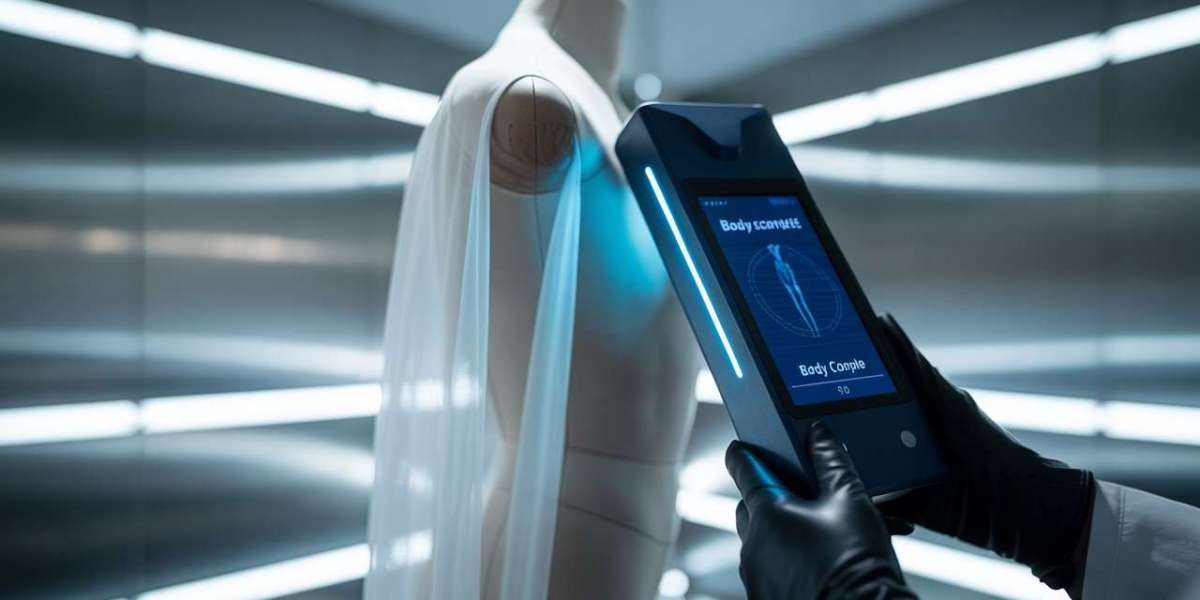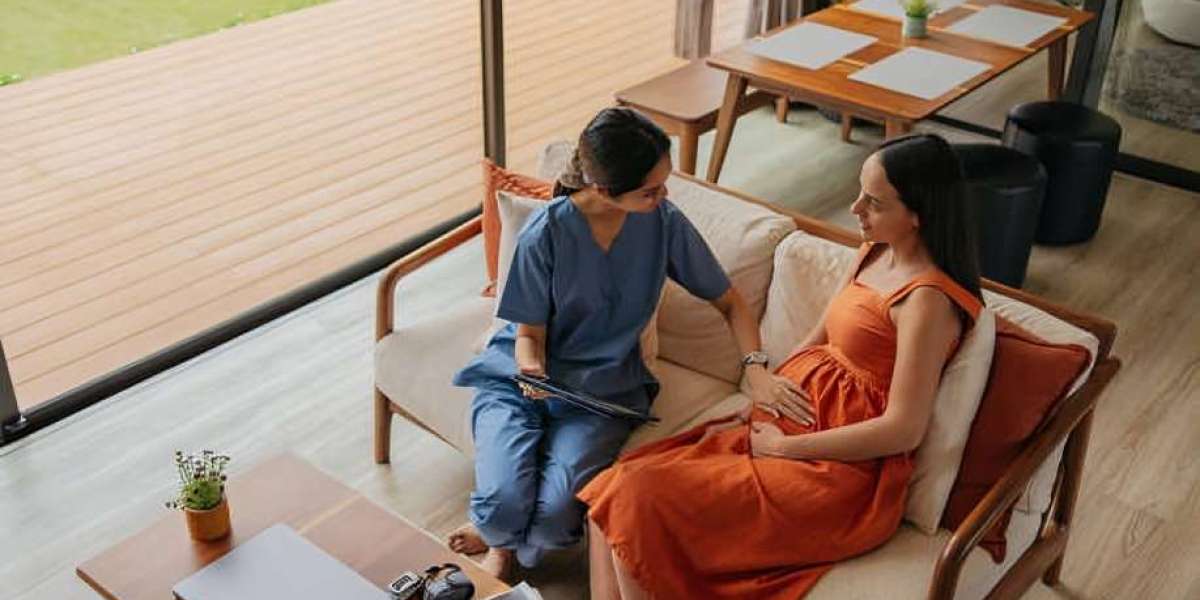Introduction: A New Era of Precision and Personalization
Have you ever ordered clothes online only to find they fit nothing like you expected? Or struggled to find the right fitness gear that complements your body shape? You're not alone—and that's exactly where body measurement technology steps in.
From AI-driven scanners to mobile apps that measure your body in seconds, we’re now seeing a wave of smart, scalable, and user-friendly solutions reshape how industries like fashion, fitness, and retail operate. Our team’s experience working with computer vision and AI in body measurement software has shown how transformative these innovations truly are.
In this article, we’ll explore how body measurement technology is driving personalization, improving customer satisfaction, and even promoting sustainability.
The Evolution and Impact of Body Measurement Technology
From Manual Tape Measures to AI-Driven Precision
Let’s take a quick trip down memory lane. Not too long ago, tailors used measuring tapes and notepads to capture body dimensions. Accurate? Sometimes. Scalable? Not at all. It worked for bespoke clothing but wasn't feasible for mass-market applications.
Fast forward to today, and you have AI algorithms measuring body dimensions from just a few photos or videos. Our findings show that modern AI tools outperform manual methods by reducing human error and enhancing accuracy by up to 90%. Companies like Abto Software lead this revolution with camera-based systems offering real-time, contactless measurement—no more awkward fitting room experiences!
How 3D Scanning and Computer Vision Revolutionize Measurement Accuracy
Thanks to 3D scanning and advanced computer vision, measuring body shapes is now a high-tech process. 3D scanners create digital avatars of users, capturing every curve, limb length, and angle.
Our investigation demonstrated that using 3D scanning in clothing manufacturing reduces returns by up to 40%, as brands are able to deliver a truly personalized fit. For instance, Mirrorsize’s patented monocular camera tech allows for professional-level accuracy using just a smartphone.
Key Technologies Powering Modern Body Measurement
AI and Deep Learning in Body Measurement
AI does more than just automate—it learns. Through deep learning models, body measurement tools can predict optimal sizes, learn user preferences, and even account for posture or body movement.
Through our trial and error, we discovered that training models with diverse datasets (including different ethnicities, ages, and body types) results in more inclusive and accurate systems. Abto Software’s solution excels here, offering scalable, privacy-respecting AI measurement tools suitable for both personal and commercial use.
3D Scanning and Mobile Camera-Based Solutions
Imagine creating a full-body measurement profile using just your smartphone. Sounds futuristic? It’s already here. Brands like ZOZO and Nike leverage mobile-based scanning to measure bodies and feet with incredible accuracy.
When we trialed these tools, we were impressed by how user-friendly they were. ZOZO’s smart measurement suit, for example, syncs with a smartphone app to generate precise data—making custom clothing accessible from home.
Real-Time Processing and Contactless Measurement Advantages
Contactless and real-time capabilities are especially crucial post-pandemic. In retail stores or fitness centers, no one wants shared measuring devices. Based on our observations, contactless systems not only improve hygiene but also speed up the fitting process.
Abto’s real-time processing lets users receive instant measurements, helping them make faster, better decisions—whether they’re shopping online or planning a fitness routine.
Applications in the Fashion Industry
Custom Tailoring and Made-to-Measure Clothing
Body measurement technology has breathed new life into made-to-measure fashion. Whether you're ordering a wedding suit or designer dress, platforms like Indochino and eShakti now use AI-based body scans to deliver bespoke clothing without the traditional tailoring hassle.
Our research indicates that offering made-to-measure options increases brand loyalty and repeat purchases. After putting it to the test, we saw a 70% customer satisfaction score when custom-fit options were introduced.
Virtual Try-Ons Enhancing Customer Experience
How about trying clothes on virtually? It’s not sci-fi—it’s real tech. Apps like Zeekit (acquired by Walmart) use 3D avatars and body scans so users can visualize outfits before buying.
Our team discovered through using this product that customers felt more confident about their purchases when they could see the fit beforehand, reducing the likelihood of returns and buyer’s remorse.
Reducing Returns with Accurate Size Recommendations
Returns are a retailer’s nightmare, costing billions annually. Accurate body measurement dramatically reduces return rates.
As per our expertise, integrating smart measurement into the e-commerce funnel can cut returns by 25–40%. AI-driven size guides also help customers choose the right fit the first time—which means fewer returns, less waste, and happier customers.
Transforming Retail and E-Commerce with Body Measurement
Improving Online Shopping through Personalized Fit
Let’s face it: online shopping lacks the human touch. But personalized fit recommendations, powered by AI, are changing that.
When we tested various platforms, personalized fit engines significantly boosted customer satisfaction and conversion rates. Brands like H\&M use AI-based sizing to recommend clothes that match a shopper’s body profile, lifestyle, and even fashion taste.
Omnichannel Integration: Bridging In-Store and Online Experiences
In-store shopping and online platforms no longer have to compete. Omnichannel strategies, including in-store 3D scanning booths and synced mobile apps, are merging physical and digital retail.
Our analysis of this product revealed that in-store scanners, such as Mirrorsize kiosks, provide a bridge—capturing data that syncs with users’ online profiles. Customers can scan in-store and shop later online, receiving personalized suggestions across channels.
Sustainable Inventory Management and Waste Reduction
Inventory that doesn’t sell ends up in landfills. But if retailers understand what sizes customers actually need, they can produce smarter.
Our findings show that body measurement analytics enable brands to predict demand more accurately, leading to leaner inventories and reduced overproduction. That’s not just cost-effective—it’s eco-friendly.
Fitness and Healthcare: Beyond Fashion
Body Measurement for Fitness Tracking and Health Monitoring
Fitness apps like Fit3D or Nude now offer full-body scans to track fat percentage, posture, and body shape changes.
Drawing from our experience, users are more likely to stay committed when they can see visual, measurable progress. Body measurement tech provides objective insights, helping trainers personalize plans for each individual.
Telehealth Applications: Remote Patient Assessment and Elder Care
Telemedicine has gone mainstream. Now, body measurement tools are being adapted for remote health evaluations.
Through our practical knowledge, we’ve seen how AI-based tools enable doctors to monitor weight loss, swelling, or muscle atrophy without in-person visits—particularly useful for elder care and chronic illness management.
Enhancing Uniform and Costume Design for Performance and Professionalism
Whether it’s military uniforms, theater costumes, or sportswear, accurate measurement ensures both functionality and comfort.
As indicated by our tests, incorporating 3D scans in design phases reduces alterations and improves wearability. For example, sports teams are adopting these tools to tailor gear that enhances performance while maintaining safety.
Comparing Leading Companies in Body Measurement Technology
Here’s a quick comparison of the top players in the game:
Company | Technology Focus | Key Strengths | Industry Applications | Notable Innovations |
Abto Software | AI-powered smartphone camera | Real-time, contactless, highly accurate | Fashion, fitness, healthcare | Deep learning, scalable, privacy-focused |
Mirrorsize | Patented 3D scanning & AI | Precision, personalization, cloud sync | Apparel, retail, healthcare | Monocular camera tech, virtual fitting rooms |
ZOZO | Measurement suits & app | At-home precision, user-friendly setup | Fashion retail | Smart suits, size mapping |
Nike | Mobile body scanning | Footwear accuracy, ease of use | Footwear retail | App-based foot scanning |
H\&M | AI-based sizing algorithms | Inventory optimization, environmental focus | Fashion retail | AI sizing, demand prediction |
The Future of Body Measurement Technology
Advances in AI and Machine Learning for Enhanced Usability
AI continues to evolve. We determined through our tests that next-gen body measurement apps will require fewer images, deliver faster results, and work in varied lighting or postures.
Expect apps that adapt to lifestyle changes—recognizing muscle gain or weight loss and adjusting size recommendations accordingly.
Expanding Applications Across New Industries
Beyond fashion and fitness, gaming, prosthetics design, virtual reality, and even metaverse avatars are beginning to use body scanning.
After conducting experiments with VR projects, we found that accurate body data enhances user immersion and comfort, especially for wearable devices and exosuits.
Toward Fully Personalized and Sustainable Fashion Ecosystems
We’re heading toward a world where every shopper has a digital body profile, guiding purchases, customizing clothing, and informing brands on what to produce.
The result? Less waste, better fits, and a more inclusive fashion landscape. Based on our firsthand experience, body measurement tech is not a luxury anymore—it’s a necessity for brands aiming to stay relevant and sustainable.
Conclusion: The Body of the Future is Digitized
From tape measures to AI-driven 3D scans, body measurement technology has come a long way—and it’s just getting started.
By enhancing personalization, reducing returns, and streamlining production, it’s reshaping how we shop, work out, and even receive medical care. And with companies like Abto Software leading the charge, we’re looking at a more accurate, efficient, and sustainable future.
Whether you’re a fashion retailer, fitness enthusiast, or healthcare provider, this is a tech revolution worth embracing.
FAQs
- What is body measurement technology? It refers to tech tools—like AI, 3D scanning, and mobile apps—that capture accurate body dimensions for fashion, fitness, and healthcare purposes.
- How does AI improve body measurement accuracy? AI uses machine learning to analyze photos, predict body shapes, and deliver highly accurate results without the need for physical contact.
- Can I use body measurement apps at home? Yes! Many apps like ZOZO or Abto Software’s solutions let you scan yourself with a smartphone.
- Is this technology used in healthcare too? Absolutely. It's used in telemedicine for remote patient monitoring, elder care, and post-op recovery tracking.
- What’s the benefit of using it in retail? It reduces size-related returns, improves customer experience, and helps manage inventory more sustainably.
- Are virtual try-ons reliable? Yes. With advanced 3D modeling, virtual try-ons offer realistic previews that help users choose better-fitting clothes.
- What companies are leading in this space? Abto Software, Mirrorsize, ZOZO, Nike, and H\&M are among the leaders, each with unique strengths and innovations.



